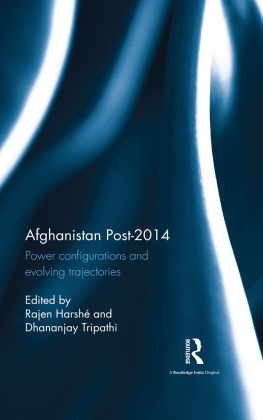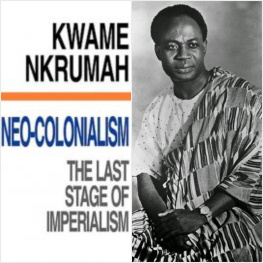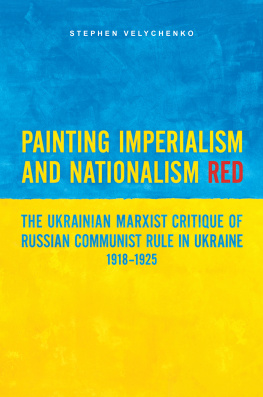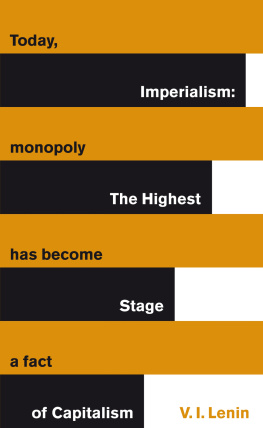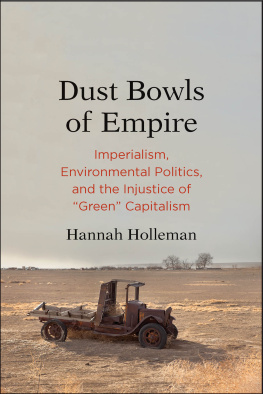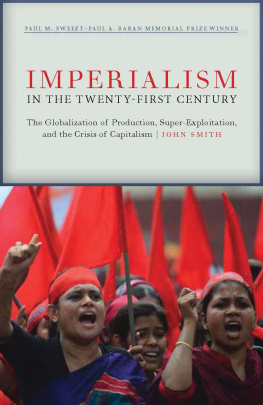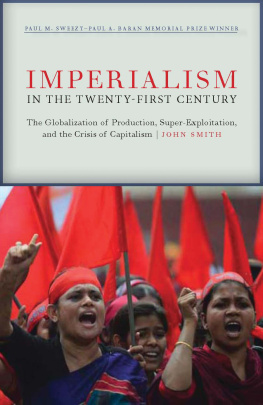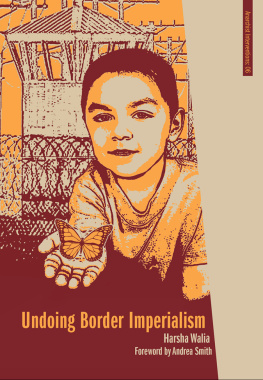Twentieth Century Imperialism
Copyright Rajen Harsh, 1997
All rights reserved. No part of this book may be reproduced or utilized in any form or by any means, electronic or mechanical, including photocopying, recording or by any information storage or retrieval system, without permission in writing from the publisher. References to Internet websites (URLs) were accurate at the time of writing. Neither the author nor SAGE is responsible for URLs that may have expired or changed since the manuscript was prepared.
First published in 1997 by

SAGE Publications India Pvt Ltd
B1/I-1 Mohan Cooperative Industrial Area
Mathura Road, New Delhi 110 044, India
www.sagepub.in
SAGE Publications Inc
2455 Teller Road
Thousand Oaks, California 91320, USA
SAGE Publications Ltd
1 Olivers Yard, 55 City Road
London EC1Y 1SP, United Kingdom
SAGE Publications Asia-Pacific Pte Ltd
3 Church Street
#10-04 Samsung Hub
Singapore 049483
Published by Tejeshwar Singh for Sage Publications India Pvt. Ltd, typeset by Line Arts, Pondicherry and printed at Chaman Enterprises, New Delhi.
Library of Congress Cataloging-in-Publication Data
Harsh, Rajen.
Twentieth century imperialism: shifting contours and changing conceptions /
Rajen Harsh.
p. cm.
Includes bibliographical references and index.
I. ImperialismHistory20th century. I. Title.
JC359.H29 1997 325'.32'0904dc21 9647334
Production Editor: Pramod Kumar Singh
To
Aashay, Navika, Dipa and Sudha
He who replies to words of Doubt
Doth put the light of knowledge out
William Blake
In Auguries of Innocence
Thank you for choosing a SAGE product! If you have any comment, observation or feedback, I would like to personally hear from you.
Please write to me at
Vivek Mehra, Managing Director and CEO,
SAGE Publications India Pvt Ltd, New Delhi
Bulk Sales
SAGE India offers special discounts for purchase of books in bulk
We also make available special imprints and excerpts from our books on demand.
For orders and enquiries, write to us at
Marketing Department
SAGE Publications India Pvt Ltd
B1/I-1, Mohan Cooperative Industrial Area
Mathura Road, Post Bag 7
New Delhi 110044, India
E-mail us at marketing@sagepub.in
Get to know more about SAGE, be invited to SAGE events, get on our mailing list. Write today to marketing@sagepub.in
This book is also available as an e-book.


Preface
T his book is an outcome of continuous dialogue, debates as well as unresolved differences with a number of scholars who have constantly shared my passion to understand imperialism. Since most major differences among us arose over delineating the very parameters of imperialism, we inevitably differed in our ways of conceptualizing it. Such unresolved differences, in spite of long and fruitful interactions, gave me a feeling that the cobwebs of schematic formulations, Marxist as well as non-Marxist, had literally eclipsed the realm of conceptions on imperialism. Perhaps an irrepressible urge to sweep away these cobwebs in the pursuit of alternative ways of viewing imperialism triggered off my thinking in several directions and, eventually, inspired me to put together my understanding of imperialism in the form of a book.
The completion of this book became possible because many teachers, colleagues, friends and students sustained me through its conception, research and writing. A special mention must be made of the late Urmila Phadnis and my teacher Anirudha Gupta. I am thankful to Sanjay Palshikar, Sudhir George, Krishna Reddy, C. Srinivas, D. Srinivas, Aravinda, Surinder Bhutani, Harsh Sethi and Sumona Das Gupta for reading this manuscript, partially or fully, and offering their insightful comments. I am particularly thankful to the reviewer who read this manuscript for Sage Publications and came up with a host of incisive observations and constructive suggestions. However, I alone am responsible for the views expressed in this work.
Besides these, a large number of friends from diverse parts of the world spared their valuable time in either answering specific queries or discussing some of the sub-themes of this study. I am, indeed, grateful to G.P. Deshpande, Prabhat Patnaik, Javeed Alam, Sudipta Kaviraj, Paresh Chattopadhyay, Bipan Chandra, Randhir Singh, Amiya Kumar Bagchi, A.P. Rana, Ram Bapat, V.R. Mehta, D.N. Dhanagare, Wolfgang J. Mommsen, Terisa Turner, Hollis Lynch, Marcia Wright, Immanuel Wallerstein, A.G. Frank and Henk Overbeek. Thanks are also due to M. Jaffer who typed this manuscript tirelessly.
Throughout the past decade two of my old friends, Shantha Sinha and Geeta Gouri, virtually lived with every other changing nuance of this book. I feel deeply indebted to Shantha's enormous patience in bearing with my half-baked ideas and Geeta's rather exaggerated but unwavering confidence in my ability to handle grand themes of interdisciplinary concerns with a sophisticated theoretical sweep. And how can I thank my children as well as students whose overwhelming admiration for me compelled me to live up to their expectations by completing this book?
April 1996
Rajen Harsh

Introduction
I mperialism has been at the centre stage of international relations, especially since the dawn of this century. Owing to its evolution across time and space, the phenomenon of imperialism has acquired complex nuances which escape definitional precision and clarity. However, in its broadest sense, imperialism more often than not, has signified an asymmetrical relationship of interdependence between materially advanced and backward societies. During this century the evolution of imperialism was characterized by two major phases, viz., colonial and neo-colonial. Under the colonial phase the mechanisms of interdependence between a metropolitan power and its colonies were exclusively determined by the former through sheer force. On the other hand, the neo-colonial phase of imperialism ensured a compatibility between the structures of external domination and formal political independence of states.
The logic, parameters and trajectory of imperialism did have inextricable links with the evolution of capitalism as an international system. Owing to its built-in expansive zeal as well as resilience, capitalism, as a system, evolved in the sixteenth century and gradually encompassed the entire world within the orbit of its operations. The expansive zeal and resilience of capitalism, in turn, demonstrated capabilities of absorbing imperialism within its parameters, during its various phases.
However, the course of evolution as well as the growth of capitalism was seldom smooth. For instance, capitalism/imperialism has had to encounter the most formidable existential challenge after the birth of the Soviet Union in 1917 and the consequent upsurge of the worldwide communist movement. In the process capitalism as a system was constrained in ensuring its survival by fiercely competing with the development alternative posed by the communist movement in the context of the cold war. Subsequently, the unprecedented upheavals in the communist world such as the downfall of communist regimes in East European states in 1989 and the disintegration of the Soviet Union in 1991 have undoubtedly reduced the intensity and magnitude of the threat to capitalism. Moreover even the staunchest opponents of capitalism like China have embraced a variant of capitalism by promoting the notion of market socialism. In substance, capitalism and imperialism have stepped into the post-cold war world with a sense of triumph.
Next page

